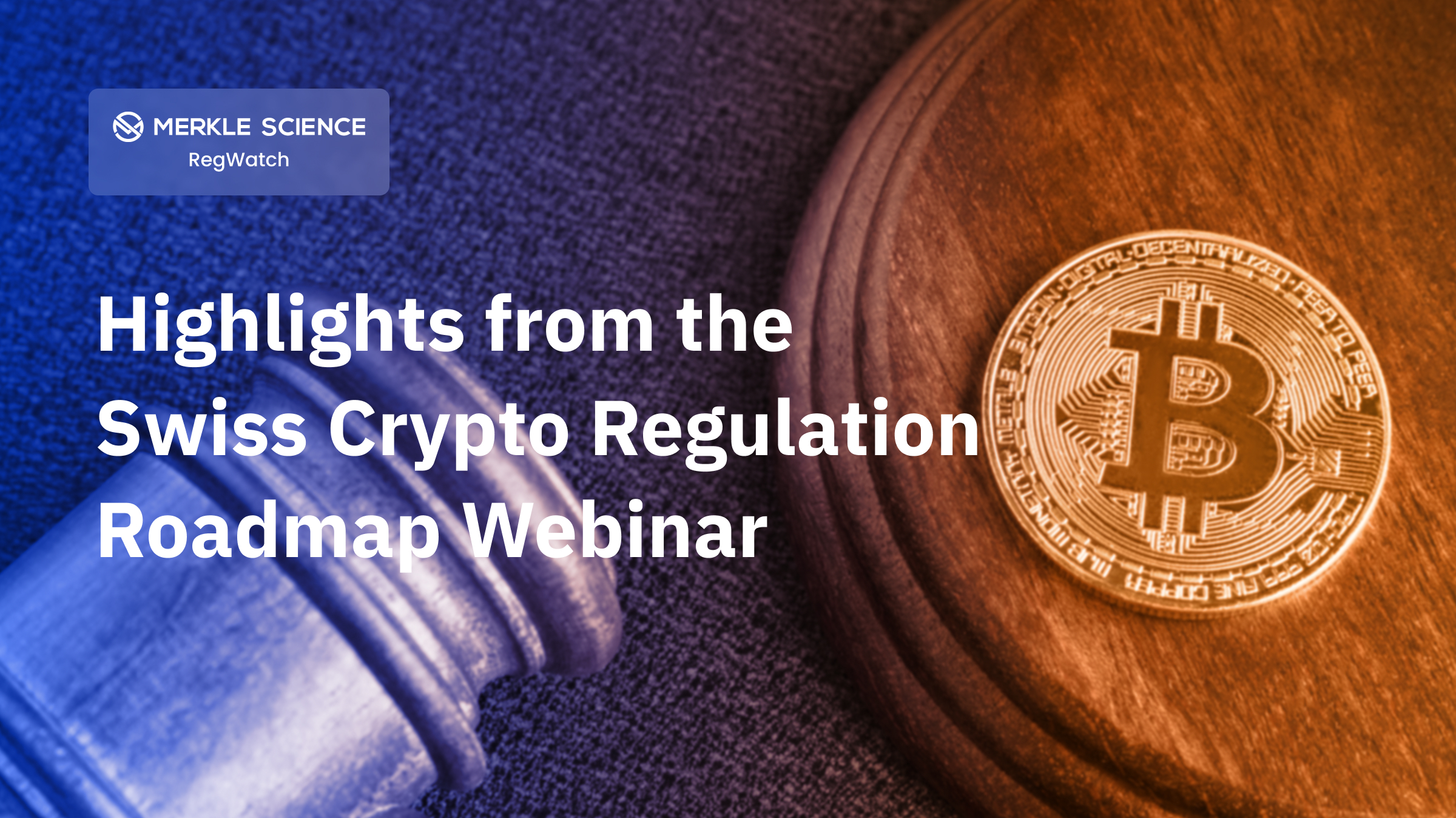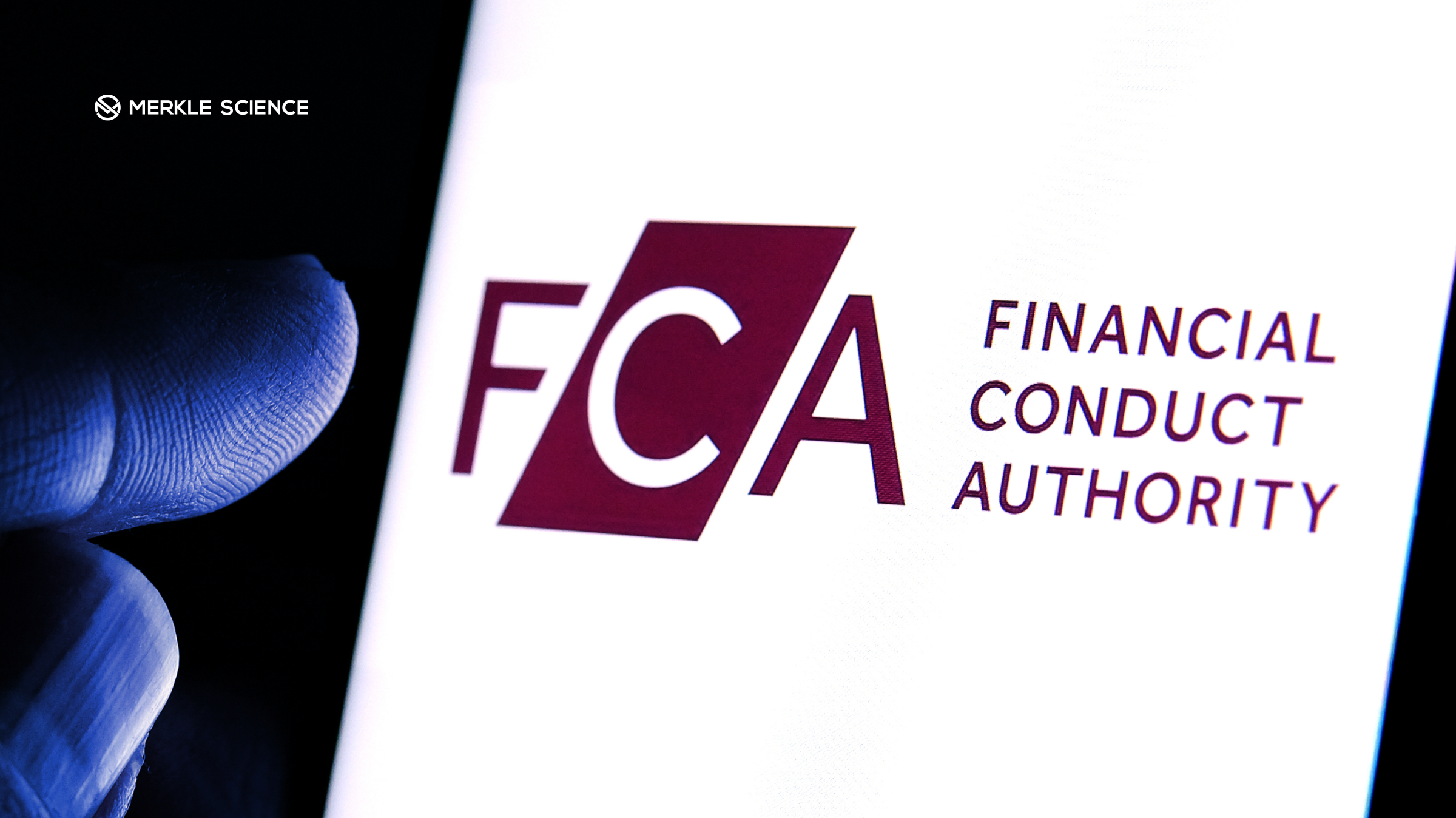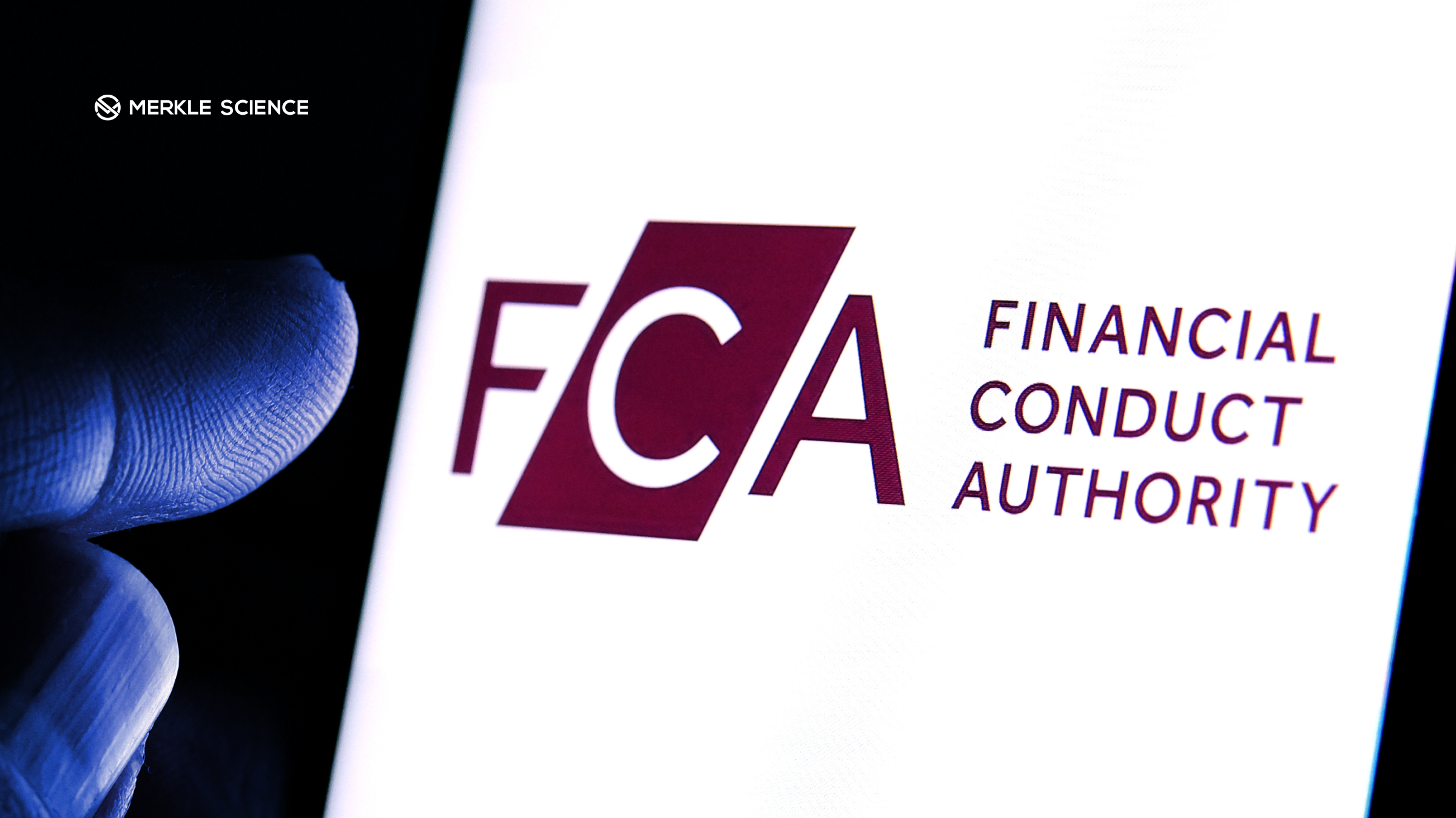At the advent of Financial Institutions moving into the crypto space our esteemed panelists, Daniel Lee (Executive Director, Head of Listings at DBS Digital Exchange Pte Ltd), Kanny Lee (Managing Director & Head of Singapore, OSL), Grace Chong (Off Counsel, Regulatory and Digital Businesses, Simmons & Simmons) and Ian Lee (Associate Director and Founding Member, Merkle Science) spoke with Merkle Science’s Director of Communications, Gaby Hui, about the process and possible implications of convergence between traditional and crypto markets. With DeFi gaining traction, financial institutions becoming more sophisticated in their crypto understanding, and increased demand from their clients, our panelists forayed into some timely topics surrounding the opportunities and challenges for financial institutions in the jurisdiction which is heralded to be a crypto haven.
For those who missed the live discussion or would like to listen again, the full webinar can be found here. Below are five key takeaways that financial institutions should take note of:
1. Financial institutions adopt a more sophisticated approach towards crypto investments
In contrast to the previous crypto boom of 2017/2018, the 2021 boom ushered in a new era of market sophistication. While 2017 saw the influx of retail investors into the market, 2021 saw a massive surge from traditional financial institutions (FIs) who are approaching the market in more complex and nuanced ways. Aided by its volatility, crypto has been generating a lot of interest and opportunities from a wider array of audiences.
As to why the market has seen a surge from FIs, Daniel Lee noted that crypto assets are now becoming a key part of a well-rounded portfolio. As crypto assets are weakly correlated to equities, including crypto assets in the portfolio would increase the portfolio’s efficiency, according to Modern Portfolio Theory. Traditional investors may also consider gaining exposure through digital assets wrapped in an ETF or ETN structure, which is generally less risky and is more appealing to a larger investor audience.
Investors are also branching out of BTC and ETH, which have consistently been the most commonly held cryptocurrencies, and are looking at altcoins such as DOGE. While BTC is still dominant, it is now predominantly used as a hedge against inflation. From a wealth creation perspective, investors are now looking at cryptocurrencies that may even be at the bottom spectrum of the Top 100 coins and gauging their upside potential.
2. Good regulations can encourage and foster innovation in traditional industries
Decentralized Finance (DeFi) is quickly gaining momentum and is pegged to be the next frontier of FinTech innovation. Though the future of DeFi holds great promise, it also faces significant regulatory hurdles. Regulators foraying into uncharted waters of DeFi may be tempted to place a centralized wrapper around it. However, in the case of DeFi, regulators need a new approach — a balance has to be struck between the need to foster financial services innovation and the need to protect consumers, combat anti-money laundering activities and preserve financial stability. Both the regulators and key DeFi players should closely analyze the DeFi infrastructure and see how it can fight against anti-money laundering and terrorist financing.
The situation however is not completely bleak. While many may consider regulations and compliance as headwinds against innovation, jurisdictions like Singapore, which has taken a leading role in global crypto regulation, have seen traditional banks place significant resources toward digital asset innovation. For example, DBS, a multinational Singapore-based bank, has made significant strides in this area by recently issuing a S$15 million (US $113 million) digital bond in its first security token offering (STO) via its Digital Exchange (DDex).
3. Crypto investors need to understand both market and technology risk exposures
Prior to investing in the crypto space, investors should understand all the risks involved in the asset class. In addition to volatility risks, crypto investors are also exposed to technology risk. Crypto is built on blockchain technology and blockchain like any other technology is built by humans making it fallible. On one hand, crypto-focused products, especially exchanges, have been regular targets for hackers over the last decade. These hacks were mainly the result of inadequate security practices. Separately, smart contracts may also be vulnerable to bugs or programming flaws that may lead to failure in performance. Attackers and hackers can exploit these vulnerabilities to drain funds and manipulate the assets directly.
Investors should also be aware of ICO scams or “rug pulls,” where founders have run away with users’ money right after conducting ICO to raise funds with no intentions of actually delivering on their promise, consequently, leading to the token itself crashing. While types of risks may change over time, at the end of the day, it is critical for investors to do their due diligence — whether it’s the project or the technologies they’re using — before investing.
4. As crypto gains importance in the wider financial ecosystem, compliance is no longer an afterthought for the crypto industry
Since FIs are under strict regulatory scrutiny, they have rigorous due diligence standards in place that are non-negotiable. In order to gain greater traction within traditional finance, compliance should be put at the forefront and not an afterthought for every crypto business. In the last few years, financial regulators around the world have become more vigilant in crypto monitoring. Jurisdictions such as Singapore and Hong Kong have laid down clear regulatory standards and businesses looking to court traditional FIs must prioritize compliance.
5. For banks aiming to create digital asset products like STOs, they should leverage their existing expertise
As the head of DBS’ digital exchange, Daniel Lee gave insights into the approach that DBS took for creating digital asset products and services. Blockchain technology, tokenization, and digital assets are simply new ways to increase access to and democratize products and services. Daniel explained that in the creation of a product like a digital bond, the more portion was the structuring of the deal and regulatory considerations, such as Singapore’s Securities Futures Act. The bank was able to leverage its investment banking team for its expertise and package it with blockchain technology in order to create an entirely new product offering.



-1.png)
.png)







